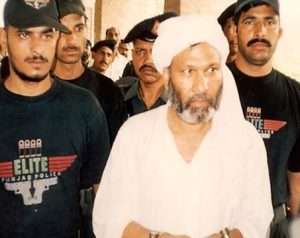The heart-wrenching case of Anwar Kenneth, an elderly Christian who spent 23 years languishing on death row in Pakistan, shines a glaring light on the deep flaws embedded within the country’s constitution and its handling of blasphemy cases. The Supreme Court’s recent acquittal of Kenneth, a 72-year-old Catholic, on the grounds of his mental instability, highlights a grotesque miscarriage of justice that left a man suffering for over two decades in the face of a flawed and prejudiced legal system.
Kenneth’s death sentence, handed down in 2002, stemmed from his attempt to express his Christian beliefs through a letter, where he simply acknowledged that non-Muslims do not believe in Muhammad’s prophethood. Yet, under Pakistan’s draconian blasphemy laws, this was deemed a crime deserving of the death penalty. The country’s Constitution, coupled with the poison of Section 295-C, enshrines such laws, which offer no room for nuance, no empathy, and no consideration for the mentally ill or vulnerable. Kenneth was not even afforded the basic rights of a fair trial, and in fact, his mental health issues were ignored for years, allowing this travesty to continue.
It is an absolute travesty that it took 23 years for the courts to finally recognize that a man who had been suffering from mental instability for years could not be held criminally responsible for an act that most certainly did not amount to blasphemy in any reasonable sense. The fact that Kenneth was subjected to such a prolonged ordeal, while the country’s blasphemy laws remain weaponized to persecute minorities, reflects the larger rot within the system. The blasphemy laws, which have led to the unjust persecution and deaths of hundreds of people, continue to serve as tools of oppression, fueling religious intolerance and violence. What happened to Kenneth is but one face of a broader epidemic—one where religious minorities, especially Christians, Hindus, and Ahmadis, are increasingly being targeted under the guise of “protecting Islam.”
The constitution of Pakistan and the laws derived from it have failed to protect the most vulnerable in society. The case of Anwar Kenneth is not merely an isolated incident but an example of the systematic abuse of power and the violation of human rights that continues to plague the nation. As we look at the suffering of individuals like Kenneth, we must confront the harsh reality: the very structure of Pakistan’s legal framework is complicit in perpetuating these injustices. The rise in blasphemy cases and mob violence against those accused—often based on mere rumors—serves as a grim reminder that the legal system, instead of being a force for justice, has become a tool for persecution. The acquittal of Anwar Kenneth, while a glimmer of hope, only underscores the magnitude of the failure that has allowed such injustice to thrive for decades. Until the laws are reformed and true justice is served, the persecution will continue to destroy the lives of countless innocent people.
